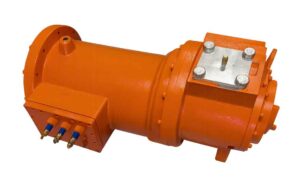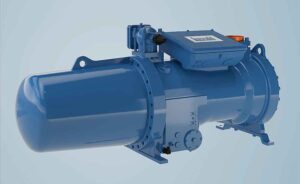US places bans on R404A and R134a
27th September 2016 USA: The US EPA is to ban a host of high GWP refrigerants including R404A, R134a, R407C and R410A in certain new products from as early as January 1, 2021.
USA: The US EPA is to ban a host of high GWP refrigerants including R404A, R134a, R407C and R410A in certain new products from as early as January 1, 2021.
The bans are part of wide ranging new rules finalised by the US Environmental Protection Agency yesterday, that will see bans on a number of existing refrigerants and a tightening of leak rate rules to reduce HFC emissions.
Commonly-used high GWP refrigerants R404A and R507A are among a number of refrigerants to be banned in new retail food refrigeration from as early as January 1, 2021, with both also being banned in new cold storage warehouses from January 1, 2023. Also included in the bans are many of the so-called retrofit blends including R407A and R407B.
R134a is one of a number of common refrigerants that will be banned from use in new centrifugal and positive displacement chillers as of January 1, 2024. Others include R407C and R410A, as well as a number of interim “drop-in” blends.
The new rules will also see R134a being banned in new domestic fridges and freezers from January 1, 2021.
Other bans which will enter into force this year affect refrigerants identified by ANSI/ASHRAE as flammability Class 3. These will be banned as retrofits in residential and light commercial air conditioners and heat pumps—unitary split air conditioning systems and heat pumps. These include a host of hydrocarbon refrigerants and blends sold in the USA as substitutes for R22, including such names as Coolant Express 22a, Duracool-22a, Envirosafe 22a and Red Tek 22a.
The hydrocarbon refrigerants propylene R1270 and R443A have been banned for new residential and light commercial air conditioning and heat pumps, cold storage warehouses, centrifugal chillers, and positive displacement chillers.
The new rules will, however, also see the flammable refrigerant propane, already accepted for use in domestic fridges and freezers, being accepted for use in new commercial ice machines.
The low GWP HFO R1234yf which will replace R134a in auto air conditioning has also been deemed acceptable for use in newly manufactured medium-duty passenger vehicles, pickup trucks, and complete HD vans.
A full breakdown of the new rules can be found here in a pre-publication version of the new rule.
Leak rates
A second new rule lowers the leak rate thresholds that trigger the duty to repair refrigeration and air-conditioning equipment containing 50lbs or more of refrigerant.
These are lowered from 35% to 30% for industrial process refrigeration, 35% to 20% for commercial refrigeration equipment and from 15% to 10% for comfort cooling equipment.
It also requires quarterly/annual leak inspections or continuous monitoring devices for refrigeration and air conditioning equipment that have exceeded the threshold leak rate.
Plant owners/operators must submit reports to EPA if systems containing 50lbs or more of refrigerant leak 125% or more of their full charge in one calendar year.
An advance copy of the new rule can be found here.
“These two rules demonstrate the United States’ continued leadership in protecting public health and the environment,” said EPA Administrator Gina McCarthy. “We are reducing emissions of HFCs that are harmful to the climate system and showing the world that we can do this responsibly and thoughtfully by working with businesses and environmental groups. I’m especially excited that we have taken these actions ahead of next month’s Montreal Protocol negotiations.”
Related stories:
https://www.coolingpost.com/world-news/us-epa-considers-future-ban-on-r134a-chillers/
https://www.coolingpost.com/world-news/epa-proposes-further-snap-changes/







